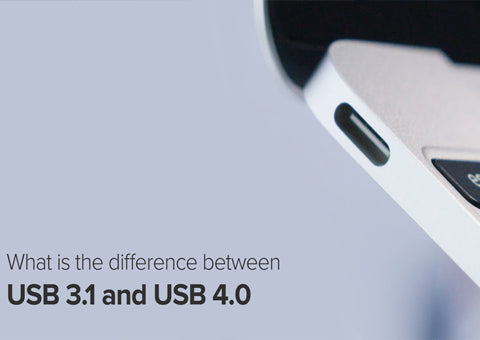Intel created Thunderbolt in the late 2000s for a project they named as 'Light Peak'. The intention was to add optical fibre for transferring data. However, scientists realised while testing with their copper wiring prototype, that similar results were generated with a much lower cost, this led to the invention of Thunderbolt technology.
So far, there are three types of thunderbolt interfaces, Thunderbolt 1, Thunderbolt 2 and Thunderbolt 3
Thunderbolt 1 was introduced in the year 2011, which provided a data transfer rate of 10 Gbps. It used protocol 4 x PCI express 2.0 and DisplayPort 1.1a
Thunderbolt 2 was later introduced in the year 2013, with a data transfer rate of 20 Gbps. It used protocol 4 x PCI express 2.0 and DisplayPort 1.2. Both Thunderbolt 1 and 2 uses the Mini DisplayPort connector.
Thunderbolt 3 was later introduced in the year 2015 with much better improvisations than its counterparts.
Thunderbolt 4 was later introduced in the year 2020, announced at CES. The differences between Thunderbolt 4 and Thunderbolt 3 include a minimum bandwidth of 40Gbps of data, allowing you to connect to two displays with a single cable, or maximise high-speed peripherals like external hard drives.
The Power of Thunderbolt 4 with ALOGIC Docking Station-
The BLAZE Thunderbolt 4 certified 4k docking station features ten ports that allow users to connect to a wide variety of peripherals, including:
- 3 x Thunderbolt/USB-C (40Gbps)
- 3 x USB-A (10Gbps)
- 1 x USB-A with Mobile Device Charging (480Mbps)
- Gigabit Ethernet
- Combo Headphone/Microphone Audio Jack
- SD 4.0 Card Reader
- Single Cable Simplicity
Thunderbolt 4 Blazing Performance
Designed for when speed and performance matter, the hub provides a massive 40Gbps bandwidth for connecting external displays and high-speed peripherals such as external hard drives. ALOGIC Thunderbolt 4 BLAZE hub can connect up to 3x downstream Thunderbolt 4 / USB4.0 peripherals and offers unparalleled productivity for creative professionals.
- Dual 4K monitors at 60Hz via Thunderbolt 3 or 4
- Single 4K monitor at 60Hz via USB-C 3.x
- High-speed data transfer at up to 40 Gbps
- Laptop charging up to 60W using USB Power Delivery
This hub truly does it all –and all over a single cable. In addition to transferring data and video over a single connection to the computer, the hub can also provide up to 60W of power to charge laptops using USB Power Delivery technology.
The Thunderbolt Technology works best for data and power transfer via a single port. It helps consolidate extra power, video, audio, and data ports into one superport. It’s multitasking technology decreases the clutter on your desk and opens new possibilities for device performance.

 Australia
Australia
 USA
USA Canada
Canada UK
UK Europe
Europe New Zealand
New Zealand Japan
Japan Singapore
Singapore UAE
UAE India
India




Leave a comment
This site is protected by hCaptcha and the hCaptcha Privacy Policy and Terms of Service apply.